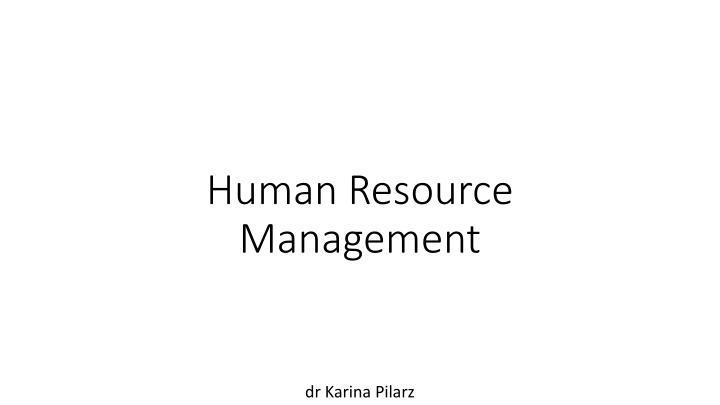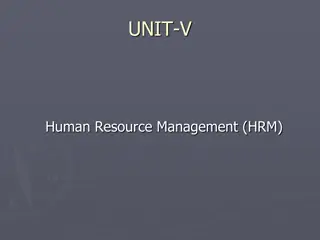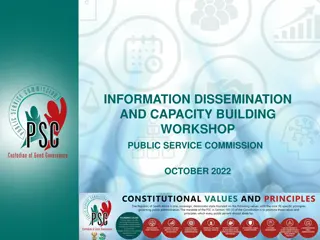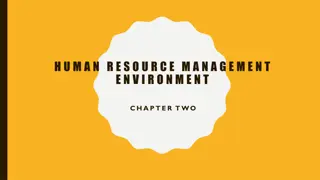
Career Development Strategies for Job Promotion Success
Enhance your career prospects with these effective strategies for securing a job promotion. Learn how to add value, observe successful promotions, and seek feedback from supervisors to advance in your company.
Uploaded on | 0 Views
Download Presentation

Please find below an Image/Link to download the presentation.
The content on the website is provided AS IS for your information and personal use only. It may not be sold, licensed, or shared on other websites without obtaining consent from the author. If you encounter any issues during the download, it is possible that the publisher has removed the file from their server.
You are allowed to download the files provided on this website for personal or commercial use, subject to the condition that they are used lawfully. All files are the property of their respective owners.
The content on the website is provided AS IS for your information and personal use only. It may not be sold, licensed, or shared on other websites without obtaining consent from the author.
E N D
Presentation Transcript
Human Resource Management dr Karina Pilarz
https://www.youtube.com/watch?v=qBQqR_DBwlo https://www.youtube.com/watch?v=IA9A1bVUW6I
Career development Earning a promotion enables you to assume a more important role in your company, earn a higher salary and gain a heightened sense of accomplishment. To effectively advance your career within your company, you will need to have excellent work performance and catch your supervisors attention. While performance, experience and skills are common requirements for a job promotion in many workplaces, you can take extra measures to become a prime candidate for your desired position.
Give more value If you want to earn a promotion, you will need to think about what your company wants from you. Every employer wants their employees to contribute to the value of the company, so making a conscious effort to add value is one of the best ways to get promoted at work. You can increase your value by doing the following: improve your skills to deliver increasingly better results for your company; expose yourself to a broader range of company activities that enable you to broaden your knowledge, skills and experience and find new opportunities for career growth.
Pay attention to people who have been promoted To identify ways you might get promoted, take a closer look at some of the people in your company who have received a promotion in recent years. Situational awareness is one of the keys to claiming your promotion. Look for common personality traits, achievements and habits among those who have successfully been promoted. These observations may give you a better understanding of what you need to do to get a promotion yourself. For example, some employers tend to promote employees who demonstrate good social skills and attend all company parties. If this is the case in your company, you will need to make an effort to socialize more and participate in more company events. Some employers want their employees to be team players. In such a situation, showing a willingness to help with team projects can help you build rapport with your supervisor or manager.
Ask for feedback from your supervisor If you want to know exactly what it takes to get a promotion, you can probably find out from your manager or employer. Try these steps to get valuable feedback on your performance: present your case for promotion to your supervisor as professionally as possible; create a list of your job responsibilities, achievements and the skills and experience you have acquired; show how your work has benefited the operations of the company, preferably with numbers or specific examples; express your desire to advance your career; be clear and straightforward about your intention by asking questions such as Will I get a promotion this year? and How can I get promoted to manager? ; be as specific as you can when asking, and follow your supervisor s suggestions to increase your chances of a promotion.
Get noticed in your workplace While working hard is important, your efforts may go unnoticed if you never put yourself in a visible position. If you want to show your employer why you deserve a promotion, you need to be noticed for your contributions to the company. Here are ways to catch your employer s attention: look for opportunities where your knowledge and abilities can be showcased, such as staff meetings or performance reviews; volunteer to get involved in projects in other departments or participate in company-wide events; check in with your employer regularly to find out what they think about your performance, seek advice on how to get promoted or provide suggestions on major projects; dress neatly and professionally to make a positive impression on your employer and coworkers.
Demonstrate your leadership skills As you move to higher positions, you will need to continually improve your leadership skills. The following tips can help you be promoted to a leadership role: become a role model for your coworkers and gain their respect through your work performance; whenever an opportunity arises, show your supervisor that you can lead and motivate your team members; perform exceedingly well in every you indispensable to the company and a prime candidate for promotion; build on certain qualities that improve your effectiveness as a leader. project, which will make
Identify and solve problems Every business has inefficiencies and problems. You can distinguish yourself as an excellent employee or show your leadership potential by taking the initiative to solve them. Look around the office for things that are impeding productivity, generating unnecessary costs, undermining workplace safety or preventing the company from achieving its goals. Then, create a plan to improve those areas. Companies hold self-starters in high regard. If you decide to take the initiative in areas where your company may be weak, you may have an advantage over other candidates for a promotion.
Become a positive presence in your workplace Staying calm and positive under pressure is one of the most essential qualities of a good leader. By keeping your mind clear and focused at all times, you can deliver consistent results and minimize your chances of making mistakes. You will also help your team members be positive, resulting in a more conducive work environment for everyone.
Maintain a strong work ethic In the end, work performance is the most vital factor in employee promotion. Therefore, you need to continually demonstrate a solid work ethic and strive to become the hardest-working person in every situation. Your work performance should show that you have already mastered your current role and are ready to take on a more challenging position in the company. Take the following steps to maintain your work ethic: be prepared to do everything necessary to stand out from your colleagues and impress your employer, such as performing daily work duties with excellence, giving a presentation or interacting with clients; be punctual for work, meetings and company events, and meet all your deadlines; manage your current responsibilities competently to prove your value to the company.
Motivate yourself constantly Staff promotion does not always occur frequently; for some people, it may take several years to achieve this goal. You need to be continuously motivated to maintain the necessary effort to stay in the right direction toward promotion. Whenever you are in doubt, ask yourself why you want to be promoted and why you should get promoted. Recalling the reasons you want a promotion can motivate you to work harder toward your goal. You can find meaning for yourself by creating a list of reasons why a promotion would benefit your career, including: proving to yourself that you are capable of greater things; having a plan for your family in which earning a promotion is an essential milestone; contributing more toward your company s mission. When you know exactly why you are striving for a promotion, you may find it easier to work hard. Keep yourself motivated to avoid deviating from your promotion plan.
Promotion interview Completing a promotion interview successfully can allow you to earn a raise, take on a leadership role and advance your career within your current company. Although this type of meeting might appear similar to a standard job interview with a new company, an in-house conversation often requires special preparation. Also known as an internal interview, a promotion meeting occurs when you are an in-house applicant for a higher position or a different position within your organization. Many organizations prefer to hire internal candidates because they already know the company s mission, expectations, goals and processes. Similarly, your organization should already be familiar with your abilities and strengths. Due to this preexisting knowledge, internal job interviews often place higher expectations on candidates and may involve more challenging conversations. Planning how to demonstrate your experience and practicing answers to common questions can help you prepare for an internal interview.
How to prepare for a promotion interview? 1. Talk with your supervisor Before starting the internal interview process, find a time to tell your supervisor about your application. Having a private conversation with your manager ensures that they learn about your goals from you rather than from the hiring committee. By initiating this conversation, you can also assess how your supervisor considers your contributions to the department, which will be helpful in the interview. They might also be able to provide additional tips and context for you to succeed. 2. Research the position To prepare for your interview, research every aspect of the position. Every candidate can read the job description, but as an internal applicant, you have access to more in-depth information. You can inquire with the human resources department about the organizational structure of the department or talk with the hiring committee about expectations for the role. You may want to ask the person leaving the role about their responsibilities, challenges and accomplishments so you can better understand what will be expected of you in the role before you go into the interview.
3. Make a list of your skills To position yourself as the best candidate for the job, highlight the skills and experience you can contribute to the role. Try to tailor your list of skills to the job description, and use examples and data from your current role to support your discussion. It is a good idea to introduce yourself as if you were an unknown external candidate to give your interviewers a clear understanding of the benefits of hiring you and to show that you are taking the opportunity seriously. 4. Consider how you have improved As an internal candidate, you should be prepared to address any mistakes you ve made or the challenges you ve encountered in your current position. It is good to take responsibility and demonstrate a strong sense of accountability. Then, you can focus the conversation on what you learned from the situation and how you improved in your current role. 5. Ask how others perceive you Before your interview, you should take time to research your reputation at work. You can start by asking coworkers and managers in your department and throughout the company how they perceive your abilities. Make a list of any relevant strengths they mention and include them in the discussion of your skills and contributions. Consider any weaknesses that arise, and think about how you can address them in the interview. For example, if your manager has questioned your leadership or your coworker has doubted your communication capabilities, be prepared to bring up examples that highlight your mastery of these skills.
Task Prepare short answers to common questions during your promotion interview: Why do you want to change roles or departments? How are you different from other candidates? What would you do during your first 30 days in this role? To zdj cie, autor: Nieznany autor, licencja: CC BY-NC
Organizational leadership Organizational leadership is a leadership method related to establishing strategic goals for an organization. It also involves inspiring an organization's employees to pursue and achieve their own goals to support the organization and its strategic objectives. Demonstrating leadership requires a specific skill set that may be beneficial for many professionals to develop to become more effective in their roles. organizational To zdj cie, autor: Nieznany autor, licencja: CC BY-SA-NC
Organizational leadership skills are the skills used to inspire individuals to achieve their goals and support the organization's strategic goals. While exact skills may vary for each person, industry and organization, some examples of these skills include: Ability to influence others: Leaders need to understand how to persuade and influence others. This helps them identify what motivates a specific person and leverage this knowledge to develop trust and inspire them to succeed. Communication: Communication skills empower leaders to share critical information, learn more about their peers and develop good relationships. It may be beneficial for leaders tobe extroverts. Delegation: Leaders must avoid keeping all work for themselves and micromanaging others. Excellent leaders understand how to delegate work to others, especially giving tasks to people based on what they enjoy and succeed with the most. Emotional intelligence: Emotional intelligence helps professionals understand each other and process their own emotions. Leaders may experience a range of challenges during their careers, so they must be able to regulate their emotions and respond appropriately. Practicality: While it's beneficial for leaders to be creative and innovative, it's also important for them to be practical, especially when developing solutions for problems. Organizational leaders often focus on facts to think critically and determine the best evidence-based decisions. Problem-solving: Problem-solving skills enable leaders to evaluate their options and determine the best solution. This requires performing research, discerning the most beneficial outcomes and choosing the appropriate way to resolve a concern. Self-control: Although it's essential for organizational leaders to maintain a proactive approach to their work, they also understand the importance of pausing, listening and thinking about their tasks. Self-control may also assist with stress management, which may benefit the entire time.
Organizational leadership affects the performance and success of an organization. It's important to have strong organizational leadership skills so you're able to lead others effectively to generate excellent results for your company and support it in achieving its goals. Leaders often create an example for others through their behavior, so demonstrating excellent skills may provide employees with good direction for modeling their own behavior. As a result, this creates a stronger, more productive company culture.
How to improve organizational leadership skills? 1. Evaluate your skills Begin your skill-building process by evaluating your current abilities. Think about your abilities and natural tendencies, and consider completing assessments that provide objective results about your skill levels. This may allow you to identify your strengths and weaknesses and understand what to focus on improving. To zdj cie, autor: Nieznany autor, licencja: CC BY-SA-NC
2. Pursue training Explore training options to improve your skills. Consider pursuing training to develop specific skills through online courses, seminars or reading materials. Another option for improving your organizational leadership skills may be to seek formal education. Think about earning an advanced degree, such as a master's degree in organizational leadership, to help refine your skills.
3. Practice your skills Look for opportunities to develop and practice your skills both personally and professionally. If you pursue a degree to help you develop your skills, consider participating in experiential learning. This learning method allows you to apply your skills to practical scenarios, helping you prepare to handle situations within your own organization.






















